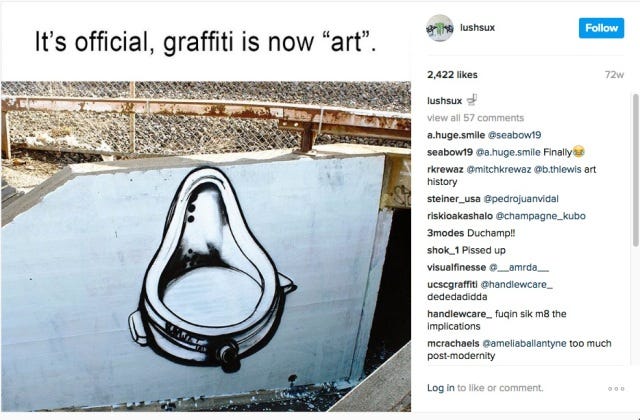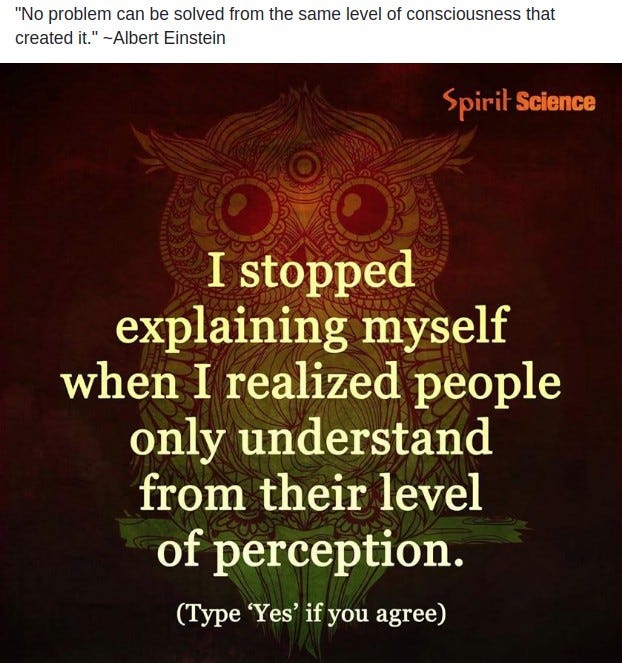Genuinely Fake, Creating a False Narrative.
A Semiotic Turn Wenzels genuinely fake.
A language of abstract form commemorates brotherhood.
Van Meegrans supper at Emmaus implies Vermeer’s intention for experts to divine. A counterfeit of that which never had been, claimed as real and must be from the brush of the master. A looting tyranny coveting the genuine fakery like so much gold pulled from the mouths of corpses. Like so many rabbits out of so many hats and the goldfish does not know the water it swims in until the surface is broken.
The beauty of dying lilies, the artist petrifies the fleeting moment and time is solidified.A promise solidified in time measured in life and non existence. Celebrate Les miserables of L’Argent . Hugo, Zola and Proudhon scream.
A promise wrapped up in a lie claiming existence where no air remains to breathe or, food to sustain. Asking everything for giving nothing. A mountebank by nature, a swindle made official by the state. To enslave the masses and keep them in want.
Stalinist and Nazi Aesthetic Programs
Both Soviet Socialist Realism and Nazi Approved Art represented attempts to harness artistic expression for state purposes while simultaneously constraining it. The results were often technically proficient but artistically sterile. Consider the work of Soviet artist Alexander Gerasimov or Nazi sculptor Arno Breker - their technical mastery is undeniable, yet their works often feel empty of genuine artistic innovation.
The key features of these state-managed artistic programs included:
Emphasis on classical technical skill
Heroic themes and idealized figures
Clear political messaging
Suppression of modernist experimentation
Institutional control of artistic production
https://poemsintranslation.blogspot.com/2013/10/pushkin-exegi-monumentum-from-russian.html
https://www.bitchute.com/channel/xXu1IS3mTl5V
Description
Beating The Ban Stick stuff that should have more views on You Tube. Original with Subtitles on Vimeo
#ConquestofDough #MultiMediaNovel #GrubStreetJournal About. #Philosoetry #ConquestofDough #MultiMediaNovel #GrubStreetJournal
Analysis
I am having a break, periodically a time out is needed a re-basing or grounding back into real life. In Real Life I am a father and a husband with a wonderful family and a 60 year history of life on this beautiful Earth.
https://grubstreetinexile.substack.com/i/152950593/searching-for-racing-cars
Ozymandias
Play Audio
Toggle annotations
I met a traveller from an antique land,
Who said—“Two vast and trunkless legs of stone
Stand in the desert. . . . Near them, on the sand,
Half sunk a shattered visage lies, whose frown,
And wrinkled lip, and sneer of cold command,
Tell that its sculptor well those passions read
Which yet survive, stamped on these lifeless things,
The hand that mocked them, and the heart that fed;
And on the pedestal, these words appear:
My name is Ozymandias, King of Kings;
Look on my Works, ye Mighty, and despair!
Nothing beside remains. Round the decay
Of that colossal Wreck, boundless and bare
The lone and level sands stretch far away.”
Source: Shelley’s Poetry and Prose (1977)
Share
THIS POEM HAS A POEM GUIDE
More About This Poem
Horace: Ode 3.30 (From Latin)
Ode 3.30: My Monument
By Horace
Translated by A.Z. Foreman
I've raised a monument to outlast bronze,
Whose heights no dynast's pyramid can exceed,
Which neither North Wind's bluster nor the gnaw
Of rain, nor countless years in slow stampede,
Nor eras' flight can level to the ground.
I'll not all die. Much of me will go long
Past Queen Funeria's reach. I in renown
Of latter days shall grow ever fresh and young.
While yet the pontiff with the quiet virgin
Ascends to the Temple of Jove on that great hill,
I, born where the Aufidus river in violence surges
And droughted Daunus ruled a wild people, will
Be named: the mighty leader from low birth
Who first led Greek song to Italic measure.
Now, Muse, take on the pridefulness I've earned,
And lay the laureate's wreathe on me with pleasure.
The Original:
Carmen XXX, Liber III
Quintus Horatius Flaccus
Exēgī monumentum aere perennius,
rēgālīque sitū pȳramidum altius,
quod nōn imber edāx nōn Aquilō impotēns
possit dīruere aut innumerābilis
annōrum seriēs et fuga temporum.
Nōn omnis moriar. Multaque pars meī
vītābit Libitīnam, ūsque ego posterā
crēscam laude recēns, dum Capitōlium
scandet cum tacitā virgine pontifex
dīcar, quā violēns obstrepit Aufidus
et quā pauper aquae Daunus agrestium
rēgnāvit populōrum, ex humilī potēns
prīnceps Aeolium carmen ad Ītalōs
dēdūxisse modōs. Sūme superbiam
quaesītam meritīs et mihi Delphicā
laurō cinge volēns, Melpomenē, comam.
https://poemsintranslation.blogspot.com/2014/08/horace-ode-330-from-latin.html
https://poemsintranslation.blogspot.com/2013/10/pushkin-exegi-monumentum-from-russian.html
Pushkin: Exegi Monumentum (From Russian)
Exegi Monumentum
By A.S. Pushkin
Translated by A.Z. Foreman
Click to hear me recite the original Russian
We heard him say, "I will destroy this temple that is made with hands, and within three days I will build another made without hands."
-Mark 14:58
I've reared a monument not built by human hands.
The public path to it cannot be overgrown.
With insubmissive head far loftier it stands
Than Alexander's columned stone.
No, I shall not all die. My soul in hallowed berth
Of art shall brave decay and from my dust take wing,
And I shall be renowned while on this mortal earth
A single poet lives to sing.
Tidings of me shall spread through all the realm of Rus
And every tribe in Her shall name me as they speak:
The haughty western Pole, the east's untamed Tungus,
North Finns and the south steppe's Kalmyk.
And long shall I a man dear to the people be
For how my lyre once quickened kindly sentiment,
I in a tyrant age who sang of liberty,
And mercy toward fallen men.
To God and his commands pay Thou good heed, O Muse.
To praise and slander both be nonchalant and cool.
Demand no laureate's wreath, think nothing of abuse,
And never argue with a fool.
The Poet
Alexander Pushkin
Found in the book
Poems by Alexander Pushkin
Ivan Panin, trans.
Ere the poet summoned is
To Apollo’s holy sacrifice
In the world’s empty cares
Engrossed is half-hearted he.
His holy lyre silent is
And cold sleep his soul locks in;
And of the world’s puny children,
Of all puniest perhaps is he.
Yet no sooner the heavenly word
His keen ear hath reached,
Than up trembles the singer’s soul
Like unto an awakened eagle.
The world’s pastimes him now weary
And mortals’ gossip now he shuns
To the feet of popular idol
His lofty head bends not he.
Wild and stern, rushes he,
Of tumult full and sound,
To the shores of desert wave,
Into the widely-whispering wood.
The Prophet
Alexander Pushkin
Found in the book
Poems by Alexander Pushkin
Ivan Panin, trans.
Tormented by the thirst for the spirit
I was dragging myself in a sombre desert,
And a six-winged seraph appeared
Unto me on the parting of the roads.
With fingers as light as a dream
Mine eyes he touched:
And mine eyes opened wise
Like the eyes of a frightened eagle;
He touched mine ears,
And they filled with din and ringing.
And I heard the trembling of the heavens
And the flight of the angel’s wings,
And the creeping of the polyps in the sea,
And the growth of the vine in the valley.
And he took hold of my lips,
And out he tore my sinful tongue
With its empty and false speech.
And the fang of the wise serpent
Between my terrified lips he placed
With bloody hand.
And ope he cut with sword my breast,
And out he took my trembling heart,
And a coal with flaming blaze
Into the opened breast he shoved.
Like a corpse I lay in the desert.
And the voice of God unto me called:
Arise, O prophet, and listen, and guide.
Be thou filled with my will,
And going over land and sea
Fire with the word the hearts of men!
”The reader of Pope, as of every author, is advised to begin by letting him say what he has to say, in his own manner to an open mind that seeks only to receive the impressions which the writer wishes to convey. First let the mind and spirit of the writer come into free, full contact with the mind and spirit of the reader, whose attitude at the first reading should be simply receptive. Such reading is the condition precedent to all true judgment of a writer’s work. All criticism that is not so grounded spreads as fog over a poet’s page. Read, reader, for yourself, without once pausing to remember what you have been told to think´´.
Henry Morley.
“I HAVE come to Shelley far too late, and for that I blame my accursed education. I still have the small dark blue textbook, Shelley, by Richard Hughes, which was forced down my throat at school.
There is no suggestion in the volume that Shelley had any ideas whatever. He was interested, apparently, in skylarks, clouds, west winds, Apollo, Pan, and Arethusa.
At University College, Oxford, on the way to the football changing rooms, I would pass each week a ridiculous monument to Shelley, a great dome-shaped sepulcher in which lies a smooth-limbed, angelic young man, carried by sea lions. His limbs are naked, perfect white, his expression is heavenly, and his genitals have been painted out (once, I think, even broken off) by civilized young gentlemen celebrating the rare successes of University College Boat Club. An embarrassed typewritten note by the monument states that Shelley was a student of University College in 1810. I recall a senior don telling me at some boring dinner: “Shelley, poor fellow. He was drowned while at college.” In fact, he was expelled in his second term for writing The Necessity of Atheism, the first attack on the Christian religion ever published in English.
In my last year at school, we were obliged to buy the new Penguin edition of Shelley, edited by a Tory lady of letters, Isobel Quigly. Her introduction told us: “There was about Shelley a nobility of spirit, a height of purpose, a kind of fine-grainedness that is a quality of birth and cannot be grown to.” Miss Quigly detected someone from her own class. She went on:
He was in spirit the most essentially romantic of the poets of his age, and his faults were all faults of an overabundant and undisciplined imagination. No poet better repays cutting; no great poet was ever less worth reading in his entirety.
So Miss Quigly set about cutting with a will. She castrated Shelley far more effectively than did the rowing oafs of University College, Oxford. Every single expression of radical or revolutionary opinion is cut out of the poems which follow. Poems, like Queen Mab, whose main purpose was political, are cut to a couple of “lyrical” stanzas. This censorship has been going on for more than 130 years: Every school generation is taught to read Shelley, as Quigly suggested, for his “lyric poetry.”
ISR Issue 46, March–April 2006
Reprint from the socialist tradition
Shelley: Trumpet of Prophecy
March 27, 2017
Globalisation Un-Entangled. #conquestofdough #regardeur/Tableaux. MEME POETRY IN THE MAKING
Globalisation Un-Entangled. (Work in Progress, Danger Poet at Work)
shadows cast from secret whispers, taps on streams of digital Imprints what oppressor does not despise what oppression will not censor and misdirect
Secretive cabals of liberal political correctness
Self-censored fearing the exile of dissentGchq Nsa Kvd , hacking whos democracyWhat democracy, sings with the voice of explosions
Tripartate accords of old, a Gold Standard. As Piggs Shit Brics and Lutherean Shards profer Gaping anuses and Calvanist certainties Divine providence and eminent domain
Democracy perverted.
Union now as then in ´38, current quarrelsMr Striets Union and Mr Orwells NiggersNot counting Niggers, the other´s not like ussix hundred million disenfranchised, is it more today?
Show more rea “Ages ago,” Urthred continued, “we certainly used to speak
languages. We made sounds and we heard sounds. People used to think,
and then chose and arranged words and uttered them. The hearer
heard, noted, and retranslated the sounds into ideas. Then, in some
manner which we still do not understand perfectly, people began to
_get_ the idea before it was clothed in words and uttered in sounds.
They began to hear in their minds, as soon as the speaker had
arranged his ideas and before he put them into word symbols even in
his own mind. They knew what he was going to say before he said it.
This direct transmission presently became common; it was found out
that with a little effort most people could get over to each other
in this fashion to some extent, and the new mode of communication
was developed systematically.
“That is what we do now habitually in this world. We think directly
_to_ each other. We determine to convey the thought and it is
conveyed at once–provided the distance is not too great. We use
sounds in this world now only for poetry and pleasure and in moments
of emotion or to shout at a distance, or with animals, not for
the transmission of ideas from human mind to kindred human mind
any more. When I think to you, the thought, so far as it finds
corresponding ideas and suitable words in your mind, is reflected
in your mind. My thought clothes itself in words in your mind,
which words you seem to hear–and naturally enough in your own
language and your own habitual phrases. Very probably the members
of your party are hearing what I am saying to you, each with his
own individual difference of vocabulary and phrasing.”
http://gutenberg.net.au/ebooks02/0200221.txt
I read this the other day, it forms a stanza in my latest poem.
Globalisation Un-Entangled. (Creative chaos????, WTF?
“Our education can be our governmentOur reason can be our Judge of the rivalsGlobalism Authority coercion and competitionor Nationalism, Internationalism Cooperation “
Je suis a Thought Leader,
Je Habite La dans la… Ready.-MADES.
DU-CHAMPS, “LEADERS OF THOUGHT”.
Found Poetry, ready spoken , ready thought, I will not teach I will remind.
Essay on Poetic Theory
A Defence of Poetry
Originally Published: October 13, 2009
Share
Introduction
Percy Bysshe Shelley was born to a wealthy family in Sussex, England. He attended Eton and Oxford, where he was expelled for writing a pamphlet championing atheism. Shelley married twice before he drowned in a sailing accident in Italy at the age of 29. His first wife committed suicide, and shortly thereafter he married his second wife, Mary Wollstonecraft Shelley, who was the author of Frankenstein and the daughter of Mary Wollstonecraft, author of A Vindication of the Rights of Woman. Among Shelley’s closest friends were the other famous Romantic poets of the day, among them John Keats, whose death inspired Shelley’s “Adonais,” and Lord Byron.
Shelley’s “Defence of Poetry” is unusual compared with similarly titled “defenses” of poetry. Shelley’s essay contains no rules for poetry, or aesthetic judgments of his contemporaries. Instead, Shelley’s philosophical assumptions about poets and poetry can be read as a sort of primer for the Romantic movement in general.
Let me help summarize this extensive essay "A Defence of Poetry" by Percy Bysshe Shelley. Here are the key points:
## Main Arguments
1. **Nature of Poetry**
- Poetry is the expression of imagination, not just versification
- It's connected to the origin of human consciousness and language
- Poetry exists in both restricted (verse) and universal senses (all forms of creative ordering)
2. **Role of Poets**
- Poets are both creators and prophets
- They perceive truths about human nature and the universe
- They unite reason and imagination in their work
- They are "unacknowledged legislators of the world"
3. **Poetry's Social Function**
- Poetry civilizes society and advances moral understanding
- It awakens and enlarges the mind
- It creates beauty and reveals hidden truths
- It preserves the best moments of the best minds
## Key Concepts
### Poetry vs. Reason
- Reason deals with differences and analysis
- Imagination deals with similarities and synthesis
- Both are necessary but imagination is superior
### Poetry's Relationship to Society
- Poetry precedes social advancement
- It shapes civilization and moral development
- It's essential for human progress and understanding
### True Utility
- Poetry has higher utility than mere practical inventions
- It serves spiritual and moral needs, not just material ones
- It creates lasting pleasure and wisdom
## Historical Perspective
Shelley traces poetry's influence through:
- Ancient Greece and Rome
- Medieval Christianity
- Renaissance
- His contemporary era
## Conclusion
Shelley argues that poetry is:
- Divine in nature
- Essential to human progress
- More valuable than pure reason or utility
- A force for moral and social good
- The foundation of all knowledge and wisdom
The essay stands as one of the most important defenses of poetry in English literature, arguing for poetry's crucial role in human civilization and spiritual development.
Canto LXXXI. Mind the Gab, gwyliwch y gwagle,Selling Humanity by the @TheEzraPound
I have had a week working on some study of William Blake and Ezra Pound.














